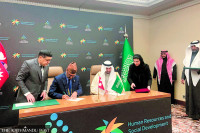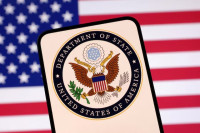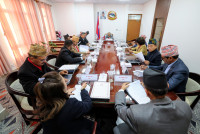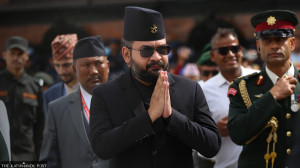National
Nepalis trafficked into Malaysia via Thailand
Officials warn of jail and deportation over illegal entry.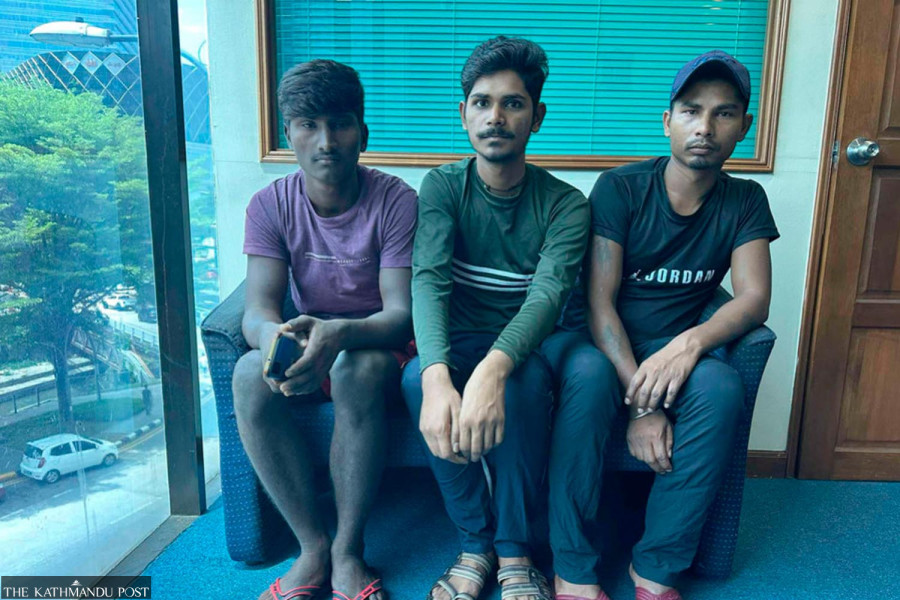
Hom Karki
With Malaysia suspending the intake of foreign workers in sectors other than plantation and security for the past 10 months, human traffickers have increasingly routed Nepali migrant workers through Thailand to enter Malaysia illegally.
The workers are first taken to Thailand on visit visas, then trafficked across the border by boat over the Golok River into Malaysia’s Kelantan state. Despite border tightening and mandatory immigration checks at Rantau Panjang, traffickers continue to misuse the crossing, officials at Nepal’s embassy in Kuala Lumpur said.
Locals in Thailand’s Narathiwat Province, where students regularly cross the Golok River for education, have objected to the clampdown, but authorities have stepped up monitoring as illegal entries have surged.
Recruitment agencies in Malaysia are also complicit, embassy officials said, as undocumented workers come without legal liabilities.
Malaysia has not accepted new workers from Nepal and other source countries since May/June last year, citing an excess quota. Only the security sector has been reopened to Nepalis in recent weeks. New recruitments in the manufacturing and services sectors, where 62 percent and 29 percent of Nepalis in Malaysia respectively, are employed, remain closed.
Among those trafficked was Nabin Pasi from ward 3 Marchawari Rural Municipality in Rupandehi, who crossed the border via Golok with two others, Rajdeu Pasi and Ravi Pasi. “We waited months for the official process to open. When that didn’t happen, Binod Yadav from our village told us we could go via Thailand on a visit visa,” Nabin told the Post at the Nepali embassy in Kuala Lumpur. “From Thailand, we were taken by boat across the river early in the morning and told we were in Malaysia.”
Each of the three paid traffickers Rs395,000. “We were promised RM1,700 a month. Only after arriving did we realise it was an illegal entry. Our families were terrified. We even sold land to come here,” Nabin said.
Their trip was arranged allegedly by Sajan Shah from Kathmandu, while a Thai agent guided them remotely. “We never saw the Thai agent. He only coordinated over the phone and arranged taxis and hotels,” Rajdeu said.
Eventually, the group was dropped near the Thai-Malaysia border, from where they were taken across the river. “There were others too. We weren’t allowed to speak. After a short walk through the jungle, a vehicle took us to Kuala Lumpur,” Ravi said.
Realising the risks of staying undocumented, the trio contacted the embassy for repatriation. Each was fined RM3,100 by Malaysian authorities—around Rs108,000—for illegal entry. Had they been arrested, they could have faced five years in prison.
“They have been repatriated with coordination between immigration and the embassy,” said Labour Counsellor Krishna Bhusal.
According to the Nepali embassy, the number of citizens entering Malaysia via illegal land routes from Thailand has risen, although there are no exact figures. Some have opted to stay and work despite the risks.
One Nepali woman in Rawang said she previously worked in Malaysia for five years and returned the same way due to a lack of opportunities in Nepal. “We were three women in the group. I’ve lost contact with the others,” she said.
Officials have urged Nepalis not to take such risks. “Malaysia is gradually reopening sectors based on need. The security sector has already opened, and others may follow soon,” said Bhusal. “But those entering illegally won’t be allowed to work and could face jail and deportation.”
CAP: From left, Nabin Pasi, Rajdeu Pasi, and Ravi Pasi from Rupandehi, who entered Malaysia illegally via Thailand at the Nepali Embassy in Kuala Lumpur. They returned to Nepal after paying a fine of 3,100 Malaysian ringgit.




 19.12°C Kathmandu
19.12°C Kathmandu
